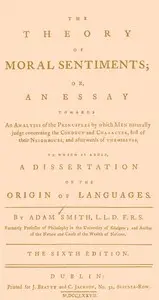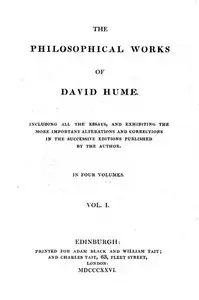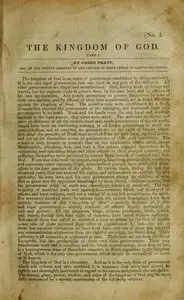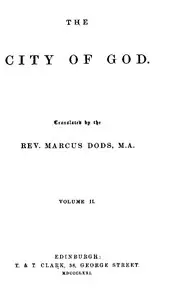"An Enquiry Concerning the Principles of Morals" by David Hume is a philosophical exploration that questions the very heart of our ethical beliefs. This 18th-century work wonders if our morals come from logical thought or from our feelings, carefully studying virtues like kindness and fairness and how they affect our actions and communities. It starts by looking at why we disagree about what is right and wrong, claiming that stubborn opinions often get in the way of clear thinking. Hume sums up discussions of his time, engaging with old and new ideas about morality to see if it comes from reason or natural feelings. Hume believes that moral qualities are linked to how well we interact and contribute to society, explaining that the more we are benevolent and exhibit kindness, the more we are contributing to society in a positive, productive way, and the more we are to be valued within that society.

An Enquiry Concerning the Principles of Morals
By David Hume
In a world of right and wrong, explore the age-old question of whether our moral compass points to reason or emotion.
Genres
Released
2003-08-01
Formats
epub
epub3 (images)
epub (images)
mobi
mobi (images)
txt
Free Download
Summary
About the AuthorDavid Hume was a Scottish philosopher, historian, economist, and essayist who was best known for his highly influential system of empiricism, philosophical scepticism and metaphysical naturalism. Beginning with A Treatise of Human Nature (1739–40), Hume strove to create a naturalistic science of man that examined the psychological basis of human nature. Hume followed John Locke in rejecting the existence of innate ideas, concluding that all human knowledge derives solely from experience. This places him with Francis Bacon, Thomas Hobbes, John Locke, and George Berkeley as an empiricist.
David Hume was a Scottish philosopher, historian, economist, and essayist who was best known for his highly influential system of empiricism, philosophical scepticism and metaphysical naturalism. Beginning with A Treatise of Human Nature (1739–40), Hume strove to create a naturalistic science of man that examined the psychological basis of human nature. Hume followed John Locke in rejecting the existence of innate ideas, concluding that all human knowledge derives solely from experience. This places him with Francis Bacon, Thomas Hobbes, John Locke, and George Berkeley as an empiricist.
Total Reviews
10.0k
Total reviews from Goodreads may change



















